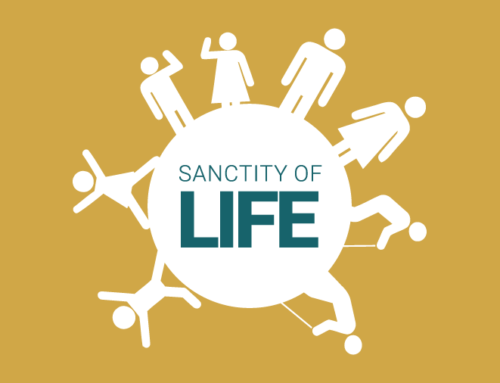By: Leslie Schaffer
Republican Candidates Use Fear to Garner Votes
The Republican presidential candidates, with the exception of Ron Paul, have too often resorted to messages of fear to garner votes. Romney, Gingrich, and Santorum have all voiced concerns about the threat of “extremist Islam.” Gingrich has said, “Today Washington refuses to tell the truth about the war we are fighting. According to experts, we are at war with Radical Islamism — and it is a war we are losing.” During the Republican National Security Debate, Santorum said, “We are not fighting a war on terrorism, terrorism is a tactic. We are fighting a war against radical Islam.” Mitt Romney warns that radical Muslims would “unite the world under a single jihadist Caliphate. To do that they must collapse freedom-loving nations. Like us.”
The “Creeping Shariah” Hysteria: A Smoke Screen for Islamophobia
The current hyper focus in at least 13 states on stopping the “creeping shariah” from infiltrating the American justice system, threatening national security, and taking away American freedoms is a smoke screen for the anti-Islamic demagoguery used by the candidates and many others participating in the public discourse. This article will show, God-Willing, how Islamophobia and its campaign to ban shariah interconnects with the concept of American Exceptionalism and the supremacist foreign policy it begets.
At the core of the “creeping shariah” hysteria is the mongering of fear. When directed through an appeal to people’s prejudices, promulgating danger is useful —it markedly gets people’s attention; and it rouses them to rally behind the one who promises to protect them from the menace. In humans, any perceived threat, whether real or imagined, can set off an “unthinking emotional response” analogous to the “startle reflex” in animals. This unthinking response in humans is sometimes ratcheted up by a perverse pleasure in feeling threatened by a bogeyman of some other nation or religion or ideology. It stimulates a sectarian impulse to see the world in simplistic terms that confer upon one’s own “tribe” the mantle of goodness regardless of their actions. Prophet Muhammad was asked about tribal loyalty that produces a fanatic blind loyalty. He replied, “It is aiding your folk in (their) oppression.”
At another time he said, “One who is killed under the banner of tribal loyalty, or raises the banner of tribal loyalty, or aids a party on the basis of tribal loyalty, (has died) a death of ignorance” (specifically, ignorance of Divine guidance; often referring to the ignorance represented by that of the pagan Arabs before the guidance brought by Prophet Muhammad, peace be upon him).
Civilizing Missions
A zealous “tribal” impulse is alive and well around the globe. In the U.S., American neo-conservatives indeed see America as a “shining city on the hill,” fulfilling its destiny, as George Bush, Jr. once said, as a nation “ chosen by God and commissioned by history to be a model to the world.” Newt Gingrich declared after his South Carolina primary victory that his campaign platform was to be “American Exceptionalism,” a phrase, like “shining city on the hill,” that conveys a uniqueness about America. Unfortunately, the far right, though mostly of a religious orientation, appears to see that exceptionalism not as exceptionally devoted to ethics, integrity, and justice and a will to do good but as an unqualified and unquestioned epithet of superiority. The ideals of life, liberty, and the pursuit of happiness are certainly excellent standards as a national presentment, and the constitutional basis of nationhood as egalitarian — that “We hold these truths to be self-evident, that all men are created equal, that they are endowed by their Creator with certain unalienable rights” — is a noble and self-evident threshold of enlightenment. The history of this nation, however, often contravenes these ideals and objectives with the historical record showing case after case of bigotry, exploitation, and amoral conduct. Three themes animate the belief of American Exceptionalism as with the earlier concept of Manifest Destiny. Those three themes, according to historian William E. Weeks, are the following:
- the virtue of the American people and their institutions
- the mission to spread these institutions, thereby redeeming and remaking the world in the image of the U.S.
- the destiny under God to do this work
The Supremacist Roots of American Exceptionalism
A supremacist view — our virtue, our civilizing mission, our divine destiny —justified the genocidal assault on the indigenous people of this land. The belief was that God Himself approved the campaign of expansionism and deculturation, if not extermination, of native Americans. Self-appointed to “Christianize and civilize the Indians,” as 18th president Ulysses S. Grant said in 1870,those who advocated this manifest destiny were following the script of earlier empire-makers: Britain carried the “white man’s burden” and France believed their imperialistic forays to be la mission civilisatrice. Even Hitler believed that he was divinely destined, saying in Mein Kampf, “Hence today I believe that I am acting in accordance with the will of the Almighty Creator…”
Cognitive Dissonance
A cognitive dissonance — espousing that “all men are created equal, that they are endowed by their Creator with certain unalienable rights” while pursuing a campaign that characterizes a people as “savage” and denies them their most basic rights to life, liberty, let alone the pursuit of happiness —is interwoven through the fabric of early U.S. history. In 1779, George Washington instructed Major General John Sullivan to attack the Iroquois people, to “lay waste all the settlements around…that the country may not be merely overrun, but destroyed.” Washington at a later date compared the American Indians with wolves: “Both being beast of prey, tho’ they differ in shape.” Such sentiments are typical of the political and military leaders of that day. Thomas Jefferson stated that any resistance on the part of the indigenous people must be met with total annihilation “…in war, they will kill some of us; we shall destroy all of them.”
How the “Barbarian” Myth Was Used to Justify the Conquest of Native Americans
Keep in mind that the conflicts with the native Americans were a result of an expansionist drive, a desire for land that was already occupied by the indigenous people who were on the misfortunate receiving end of a conquering impulse. In Race and Ethnic Relations, Darryl Hall writes, “The pattern of land seizure, subjugation, assimilation, and [the subsequent] resistance to domination has been repeated with indigenous peoples in nations throughout the world.” Justifying a ruthless, vanquishing campaign necessitates a besmirching of the “enemy’s” culture, a characterizing of them as barbarous and loathsome. The demagogue’s penchant for demonizing those he wishes to exploit, control, discriminate against, or destroy has not changed over the many years.
How Fortunate Circumstances, Not Exceptionalism, Led to America’s Rise
Those who believe in American Exceptionalism see so many evidences of the rightness of their world-view. America’s prosperity and the political and economic march to hegemony over the course of 200 plus years prove them right, so they think. Many intellectually honest historians and commentators have suggested, however, as do writers David Kanin and Steven Meyer, that fortuitous circumstances to a great extent yielded America’s rise: “For more than a century after independence the United States benefited from a unique confluence of uninterrupted access to cheap labor (slave and immigrant), vast amounts of under populated land (especially once the natives were expelled and killed), and the Ohio-Mississippi-Missouri waterway system.”
A Nation Like Others
Such points, though, are lost on those who cherish the notion of American Exceptionalism, a worldview that blinds its advocates from seeing that U.S. history is a mixed bag. Winston Churchill said that “history is written by the victors,” and the advocates of exceptionalism prefer the white-washed version of reality that camouflages the dark underbelly of the American Dream —an idealist vision morphed into an octopus with countless sucker-bearing arms.
A book by former New York Times foreign correspondent Stephen Kinzer, Overthrow: America’s Century of Regime Change from Hawaii to Iraq, details how the U.S. has used its far-reaching power over the last century to stifle dissent, thwart nationalist and independence movements, and direct or participate in coup d’etats — always to advance its own political and economic agendas and often to access and/or control the natural resources of other countries. That aggressive foreign policy has interfered with, exploited, or wreaked havoc with too many nations to list here, many beyond the widely known examples of Cuba, Nicaragua, Grenada, Chile, Iran, Afghanistan, and Iraq.
Newt Gingrich’s Vision for America’s Foreign Policy: Aggressive, Interventionist, and Exceptionalist
Newt Gingrich would have the U.S. continue an aggressive foreign policy and its long-standing practice of propping up ruthless dictators so long as they are pro-American and accede to American dictates. In the wake of the Arab Spring, he said, “This administration is crippling the United States and every country in the world by failing to protect those who help us.” He was speaking at a Maryland Republican Party dinner in June of 2011, and went on to say, “It’s immoral and it is destructive.” Gingrich published in 2011 A Nation Like No Other: Why American Exceptionalism Matters. In this book he writes, “America is simply the most extraordinary nation in the history. This is not a statement of nationalist hubris. It is an historic fact.”
American Exceptionalism as Code
David Stockman, himself a Republican who at age 34 was Ronald Reagan’s budget director, said about ultra-conservative “exceptionalism”: “The word is neocon-speak, code for an aggressive foreign policy. It’s for more Bush, with even more aggressive intent. It’s about beating the war drums in Iran. It’s about keeping the military establishment—which is vastly greater than we need—fully in place. That’s what exceptionalism is about. It’s not about our economic problems or jobs or the fact that Main Street is falling behind or that we’ve done nothing about Wall Street or that we have a Fed out of control or all the other issues that we could mention. That is code for an aggressive foreign policy that I think is the most dangerous thing we could do at the moment.”
How “Manifest Destiny” and “American Exceptionalism” Have Led to War and Intervention
Ron Paul concurs. In January of this year Paul told a crowd in South Carolina, “There’s a move on in our country to excuse our intervention overseas, and they call it American exceptionalism. They distort this view, of course.” Paul went on, “They say that America is exceptional, they know what is right, and they have this moral obligation to force it down the throats of other people, and if they don’t take it, we’re supposed to invade them and make them do exactly as we say.” Romney, less hawkish than Gingrich or Santorum, nonetheless aligns himself with those who subscribe to an aggressive foreign policy and perhaps even the “moral obligation to force [what America sees as right] down the throats of other people.” Giving a foreign policy address at the Citadel, a military college in South Carolina, he said, “I will not surrender America’s role in the world. This is very simple: If you do not want America to be the strongest nation on Earth, I am not your President.” He went on to say, “This century must be an American Century. In an American Century, America has the strongest economy and the strongest military in the world. In an American Century, America leads the free world and the free world leads the entire world.” And why is America at the helm? His answer:“America is exceptional.”
La mission civilisatrice, Manifest Destiny, American Exceptionalism, an American Century…all the same —“our virtue, our civilizing mission, our divine destiny”— hubristic impulse. There is a wise saying: “Those with true virtue do not flaunt themselves and so their upstanding character is clearly seen by all; nor do they boast about themselves and so their goodness endures and speaks to the ages.”
America Must Be More Self-Examining
As Americans, we have to challenge ourselves and this country to be more self-examining so as to correct errors and wrongdoings and continually stretch ourselves and our nation toward greater ethics, integrity, and justice, the same as every other nation should challenge itself to do. In fact, as the dominant power in the world today, the primary challenge lays on our shoulders so that we do not continue strong-arming our way across the globe; rather we must commit to building genuine character, individually and as a nation, and spread, thereby, a goodness purified of hypocrisy and subterfuge. That would seem like the wise, just, egalitarian approach to living in a world utterly connected and interdependent.
How American Arrogance Has Led to Turmoil and Rancor
Not so fast, says Romney, the presumed frontrunner in the Republican primary contest. “We have a president right now who thinks America’s just another nation,” he said during one of the primary debates. “America is an exceptional nation. We have a president who thinks that the way to conduct foreign policy is through his personal effects on other people. I believe the way to conduct foreign policy is with American strength.” But as John Milton, 17th century writer and poet, said, “What is strength without a double share of wisdom?” In fact, any nation throughout history which has brandished its military might with arrogance and inhumaneness, devoid of the wisdom yielded up by morality and reason, has bred turmoil and rancor in its wake, and ultimately brought about its own demise.
Islamophobia and Exceptionalism
American Exceptionalism evokes prideful feelings, that “Americans were chosen by God,” writes Julia E. Sweig, Nelson and David Rockefeller Senior Fellow for Latin America Studies. She continues, that “…their special experiment at home [is] morally superior to other countries and thus theologically required to be a light unto the nations. Whether manifest destiny in the 19th century, [Bill Clinton’s] indispensability in the 20th century, or preemptive attacks in the 21st, Democrats and Republicans largely concur on the upside of American exceptionalism. It is the rare public official with the courage to suggest that the double standards and disregard for international law that frequently define American foreign policy might in fact hurt national interests.”
How American Policies Have Fueled Anti-Americanism
Such nuanced understanding, that there is a downside to American Exceptionalism and its hegemonic foreign policy, is ungrasped by the far right. After 9/11 then-president George Bush said in an address to Congress on September 20, 2001, “They hate our freedoms: our freedom of religion, our freedom of speech, our freedom to vote and assemble and disagree with each other.” However, according to a 2004 report by the Defense Science Board Task Force, an advisory committee to the Secretary of Defense:
“Muslims do not ‘hate our freedom,’ but rather, they hate our policies. The overwhelming majority voice their objections to what they see as one-sided support in favor of Israel and against Palestinian rights, and the longstanding, even increasing support for what Muslims collectively see as tyrannies, most notably Egypt, Saudi Arabia, Jordan, Pakistan, and the Gulf states.”
“Furthermore, in the eyes of Muslims, American occupation of Afghanistan and Iraq has not led to democracy there, but only more chaos and suffering. U.S. actions appear in contrast to be motivated by ulterior motives, and deliberately controlled in order to best serve American national interests at the expense of truly Muslim self-determination.”
The Far Right’s Misunderstanding of American Exceptionalism
Yet, some on the far right see any back-step from the brinkmanship of aggressive foreign policy as anti-American, as hatred for Western civilization. Referring to the “American left,” Santorum said: “They hate Western civilization at the core. That’s the problem.” Santorum also sees American involvement in the Middle East as part of our “core American values.” In fact the “values” of American Exceptionalism are on full display when Noam Chomsky points out that, “In internal discussions in 1958, which have since been declassified, President Eisenhower spoke about a campaign of hatred against us in the Arab world. Not from the governments, but from the people. The National Security Council’s top planning body produced a memorandum – you can pick it up on the web now – in which they explained it. They said that the perception in the Arab world is that the United States blocks democracy and development and supports harsh dictators and we do it to get control over their oil. The memorandum said, this perception is more or less accurate, and that’s basically what we ought to be doing.”
The “Values” of American Exceptionalism
So the “values” of American Exceptionalism include a frank recognition of why aggressive American foreign policy provokes an anti-American backlash but, nonetheless, such rancor toward the United States is seen as an inevitable and acceptable adverse side effect. Mark Levine, in Why They Don’t Hate Us: Lifting the Veil on the Axis of Evil, writes, “Certainly, the average Muslim is better informed about the United States or Europe than the average American is about Arab/Muslim, or even European, cultures and societies. To the extent that Muslims are critical of the United States or the larger West (which today would more appropriately be called the ‘Global North’), their reasons are as often as not quite rational.” Further, he writes in a review of another book, Islamophobia: The Ideological Campaign Against Muslims, by Stephen Sheehi, “…a deep-seated psychological fear of Islam and Muslims has been produced and circulated to enable not merely war, but a globalized militarism of historically unprecedented scale that most Americans have come to take for granted as necessary and inevitable in the post-September 11 world.”
Phyllis Bennis, director of the New Internationalism Project at the Institute for Policy Studies, commented that Islamophobic rhetoric is an important tool of incitement for hawkish politicians as was the “reds-under-your-bed” propaganda during the Cold War. But, she says, “With the fall of communism, we didn’t have the Soviet Union to kick around anymore. But then came the idea of Islam as an enemy. That’s powerful.”
The Dangers of the “Shariah Infiltration” Conspiracy Theory
Notice how a version of “reds under your bed” is used anew to monger fear: Rep. Allen West a Republican from Florida campaigned on a promise to oppose religious diversity. He has said that he hopes Congress will focus on the “infiltration of the Sharia practice into all of our operating systems in our country as well as across Western civilization.” Banning shariah must be a part of the “national security strategy” and that focus must include “security systems, our political systems, economic systems, our cultural and educational systems, so that we can thwart this.”
The Poisonous Atmosphere – and How to Clear the Air
The current campaign of Islamophobia and shariah-bashing thus stand on a number of bases:
- the concept of American
- Exceptionalism
- the aggressive foreign policy that accompanies that worldview
- the political benefit of having a bogeyman, someone to blame, especially when there is an economic downturn and people feel insecure and fearful; Muslims currently serve as the bogeyman
- the election of a black president which threatens the worldview of the less than broad-minded of the white working class and causes them to feel loss of socioeconomic primacy and thus become more susceptible to mongers of hatred and fear
- the propagandized perception of Islam and all Muslims as radical, with a propensity for terroristic activity to achieve end goals of world dominance
- subscribing to a set of double standards: all nations must abide by international law but the superpower will ignore such law as and when it pleases
- refusal to acknowledge the historically documented awareness of the power elite of how a hegemonic foreign policy legitimately and inevitably breeds resentment and hatred
- the concern that President Obama has (tenuously, at times) embraced a foreign policy approach that relinquishes some of the most hawkish and imperialist aspects of American Exceptionalism
How to Debunk the Myth of Sharia Law
There are a number of ways to throw light on the destructiveness and intellectual dishonesty of the current campaign to foment Islamophobia and the fear of shariah:
-
Point out that all evidence indicates that shariah as a threat is a non-issue.
According to a 2011 report by the ACLU, Nothing to Fear: Debunking the Mythical ‘Sharia Threat’ to Our Judicial System, “There is no evidence that Islamic law is encroaching on our courts. On the contrary, the court cases cited by anti-Muslim groups as purportedly illustrative of this problem actually show the opposite: Courts treat lawsuits that are brought by Muslims or that address the Islamic faith in the same way that they deal with similar claims brought by people of other faiths or that involve no religion at all. These cases also show that sufficient protections already exist in our legal system to ensure that courts do not become impermissibly entangled with religion or improperly consider, defer to, or apply religious law where it would violate basic principles of U.S. or state public policy.”
-
Point out that Jewish Halakah law and Catholic Canon law are both faith-based laws that exist side by side with civil law.
Beth Din is a mediation and arbitration service that uses Halakah law and “conducts its proceedings in a manner that is consistent with the requirements of secular arbitration law, so that the rulings of the Beth Din are legally binding and enforceable in the secular court system.” When there are differences between Halakah law and constitutional law, rulings by the religious court would be overridden. Canon law, according to Dr. Edward Peters, a lay canon lawyer, “the oldest continuously functioning legal system in the western world, is the internal legal system of the Catholic Church. It affects virtually every aspect of the faith life of some one billion Catholic Christians throughout the world.” No one has raised a voice about “creeping Halakah” or “creeping Canon law.” Shariah law must be seen in the same way as Halakah or Canon law.
-
Point out that we would hope and expect that American people not be judged by the beliefs and actions of American extremists such as the Ku Klux Klan, the Patriot movement, or any of the other myriad of hate groups within the U.S. with propensity to violence.
According to the The Southern Poverty Law Center there are 1,002 known hate groups operating across the country, including neo-Nazis, Ku Klux Klan, white nationalists, neo-Confederates, racist skinheads, black separatists, Christian identity groups, border vigilantes, and others. Since the year 2000, the number has increased by over 50 percent. Yet, we would be averse to other nations judging Americans by the many extremist groups in our midst. Likewise, Muslims should not be judged by the extremists in their midst nor characterized en masse.
-
Point out that we must apply a single standard of morality to ourselves as we do to others,
including utilizing and applying a single definition of terrorism; the official U.S. definition is: “[An] act of terrorism, means any activity that involves a violent act or an act dangerous to human life that is a violation of the criminal laws of the United States or any State, or that would be a criminal violation if committed within the jurisdiction of the United States or of any State; and appears to be intended to intimidate or coerce a civilian population; to influence the policy of a government by intimidation or coercion; or to affect the conduct of a government by assassination or kidnapping.” Any person, group, or nation that is guilty of such action, must acknowledge that and cease and desist from such activity, and be held accountable. All nations must denounce and eschew double standards when it comes to the support and abiding of international law.
-
Point out that the campaign to ban shariah has unintended consequences.
Tim Murphy, who writes for Mother Jones, says with regard to anti-shariah legislation, “According to Roger Baron, a professor of family law at the University of South Dakota, the amendment’s prohibition on foreign laws would remove the state from a number of agreements concerning child custody and child abduction. Because those agreements hinge on reciprocity, ‘foreign countries will not enforce our custody decrees…’”
No Conceit or Condescension
Most importantly, we must make sure that we do not commit the same errors committed by those who ascribe to American Exceptionalism. At the core of this “exceptionalism” is the belief in superiority. This gives rise to arrogance and overweening pride. Dr. Jamal Badawi comments about spiritual arrogance: “As a response to some of the people who used to talk in pride about their ancestors (when people talked about their relation to Abraham and other Israelite prophets) the Qur’an says in (2:141) ‘That was a people that hath passed away. They shall reap the fruit of what they did, and ye of what ye do!’ In the time of the Prophet Muhammad some of the Israelites used to boast that if they were going to go to the fire, it will only touch them for a few days, in (2:80) ‘And they say: The Fire shall not touch us but for a few numbered days; Say: Have ye taken a promise from Allah, for He never breaks His promise? Or is it that ye say of Allah what ye do not know?’ Addressing the Muslims themselves in order to avoid the attitude of spiritual arrogance, the Qur’an says in (4:123) ‘Not your desires, nor those of the People of the Book (can prevail): whoever works evil, will be requited accordingly. Nor will he find, besides Allah, any protector or helper.’”
The Dangers of Arrogance in Islam
Certainly a Muslim should feel a sense of honor in being Muslim. However, this very easily can slink its way to a sense of superiority and arrogance. Narrated Abdullah bin Masood: “The Prophet of God said: ‘He who has in his heart the weight of a mustard seed of pride and arrogance shall not enter Paradise.’ A person (among those listening) said: ‘Verily a person loves that his dress should be fine, and his shoes should be fine.’ He (the Prophet) remarked: ‘Verily, God is beautiful and He loves beauty. Pride is disdaining the truth (out of self-conceit) and contempt (or condescension) toward the people’” (Sahih Muslim). Islamically, the only true honor is taqwa (God-consciousness, piety, virtue). Islam does not sanction any sense of superiority to others — whether nations, ethnicities, races, or religions, or persons. Being Muslim must be viewed as a blessing and a responsibility, not a merit and privilege. Yet there are some who think themselves superior because they are Muslim.
Pointing to the actual meaning of “muslim” as “one who surrenders to God” — a personal characterizing rather than a nominal title — Abul A’la Maududi writes, “Islam, in fact, is a descriptive title. Whoever possesses the qualities contained within this description, regardless of his race, community, country, or family, is a Muslim. According to the Quran (the holy Book of the Muslims) among every society and in all ages there have been good and righteous people who possessed these qualities – and all of them were and are Muslims.”
Why We Should Reject the Belief in Our Own Superiority
In fact, this gets to the crux of the problem with belief in American Exceptionalism. If an individual of any group or persuasion went around announcing his superiority, boasting of his own virtue, claiming that it was his mission and his divine destiny to civilize others, making his self-proclaimed “exceptionalism” his calling card, he would be discredited and rejected without hesitation. But if he was, in fact, virtuous but humbly went about his life’s work spreading goodness wherever he went, he would be perceived as a genuinely exceptional person. It’s worth repeating: “Those with true virtue do not flaunt themselves and so their character is clearly seen by all; nor do they boast about themselves and so their goodness endures and speaks to the ages.”This just as aptly applies to nations. In the last sermon of the Prophet, peace be upon him, he said, “All mankind is from Adam and Eve; an Arab has no superiority over a non-Arab nor a non-Arab has any superiority over an Arab; also a white has no superiority over a black nor a black has any superiority over a white, except by piety and good action.”
An Egalitarian Approach to Existence: A Vision for America Based on Ethics, Justice, and Integrity
We pray that God guides us in our efforts to offset the campaign to besmirch Islam and shariah. Let us be of those who offer an alternate vision to pretentious exceptionalism, espousing for America an egalitarian approach to existence and engagement in the world, firmly planted on a foundation of ethics, justice, and integrity. We would hope that Romney, Santorum, and Gingrich spend less time boasting of America’s greatness and more time actualizing the precepts of their religion, plain for all to see in their scripture. Jesus, peace be upon him, is reported to have said to his followers during the famous Sermon on the Mount: “A city that is set on an hill cannot be hid. Neither do men light a candle and put it under a bushel, but on a candlestick; and it giveth light unto all that are in the house. Let your light so shine before men, that they may see your good works…”
How to Make America a Force for Good in the World
We can join with those many fellow Americans who believe that the U.S. can be a genuine force for good in the world, and will fulfill its potential when the majority of citizens demand ethics and integrity from the politicians. We must elect those who renounce the power elite who seek to act in their own political/military/corporate interests. We must elect those who realize that they are public servants who can only serve the common good by being honest, moral, self-examining, humble, and genuinely wishing for one’s human brothers and sisters all over the world what one wishes for oneself. Then the shining city on the hill will not be a showcase for boasting and bedazzlement, but a beacon of lucid and inspiring light for all who journey on the path to goodness.
“And turn not thy cheek away from people in pride, and walk not haughtily on earth: for, behold, God does not love anyone who, out of self-conceit, acts in a boastful manner.” (Quran 31:18)
Reprinted, with permission, from The Message International.
Got Questions?
We have Answers. Get in touch now.








